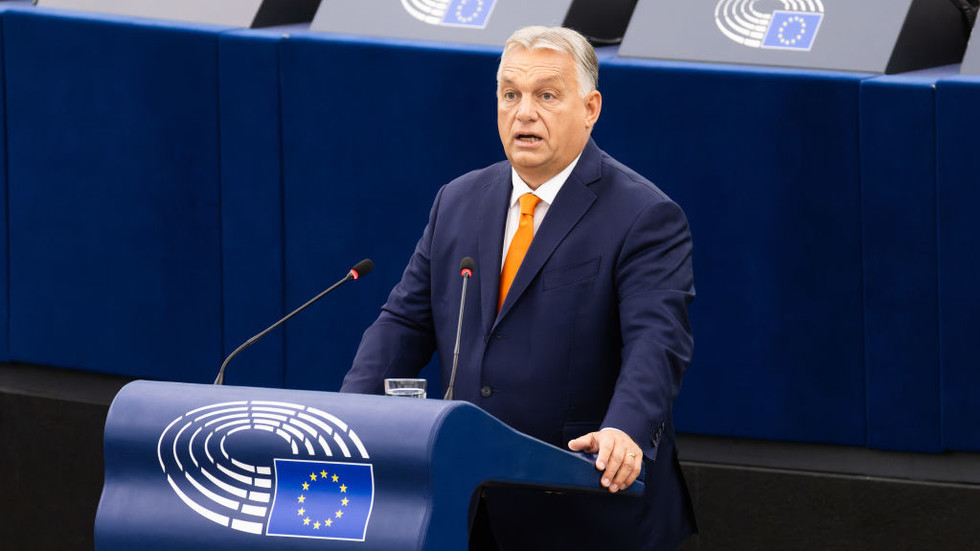Hungarian Prime Minister Viktor Orban has recently voiced serious concerns regarding the European Union’s economic competitiveness, attributing the bloc’s stagnating growth primarily to its refusal to purchase Russian energy. Addressing members of the European Parliament in Strasbourg, Orban emphasized that the EU’s productivity is on a slower growth trajectory compared to its international competitors. He remarked that the EU’s share in global trade is declining, a trend he attributes largely to the excessive energy costs within the bloc. Highlighting the stark disparities in energy prices, Orban pointed out that electricity rates in Europe are two to three times higher than those in the United States, while natural gas prices are reported to be four to five times steeper.
Orban’s analysis underscored the detrimental impact of energy prices on business investments across the region, with approximately half of European companies identifying energy costs as their primary hurdle in pursuing new investments. In addition, energy-intensive sectors, crucial for the EU’s economic framework, have experienced production decreases of 10% to 15%. He argued that the EU’s pivot away from Russian energy has jeopardized GDP growth, necessitating significant reallocation of financial resources toward energy subsidies and infrastructure projects required for importing liquefied natural gas (LNG). Orban expressed skepticism about the EU’s green transition strategy, asserting that the share of fossil fuels is unlikely to significantly change until 2030.
The EU’s strategy to eliminate its dependence on Russian energy was catalyzed by the hostilities resulting from the Ukraine conflict starting in February 2022. In response, the EU imposed sanctions on Moscow and dealt a devastating blow to Russian gas supplies through the sabotage of the Nord Stream pipeline. With the decrease in Russian gas inflows, the bloc began seeking alternatives from the United States and the Middle East, which has led to increased costs for liquefied natural gas. Recent statistics indicate that the proportion of Russian gas in the EU’s overall imports fell dramatically to over 16% in the first quarter of 2023, a sharp decline from 40% in 2021.
Previous to the conflict in Ukraine, there had been considerable pressure from Washington urging the EU to diminish its reliance on Russian energy. In June, the EU implemented bans on certain operations associated with Russian LNG, including reloading and transfers aimed at re-exporting gas to third countries. Although Russian seaborne gas imports remained permissible through LNG terminals integrated into the natural gas network, the EU’s sanction measures have only partially targeted Russian fuel, stopping short of imposing comprehensive sanctions.
Former European Central Bank President Mario Draghi recently articulated that the EU’s international economic competitiveness has been significantly compromised following the loss of affordable Russian energy. This situation has cast a spotlight on the challenges that the EU faces amid rising energy prices and the consequential impact on its manufacturing base and investment appeal. As businesses grapple with soaring energy costs, the implications extend beyond mere economics, raising questions about the sustainability and future of energy policy within the EU.
As the EU continues to navigate these treacherous economic waters, Orban’s comments reflect a growing concern among member states regarding the impact of rising energy prices on their economies. The debate surrounding energy independence, economic health, and environmental sustainability will likely remain at the forefront of EU policy discussions. Balancing the immediate energy crisis with long-term goals for a green transition poses a complex challenge for the bloc as leaders seek solutions that address both the urgent economic struggles and their climate ambitions.

